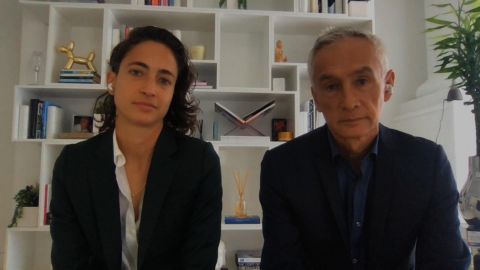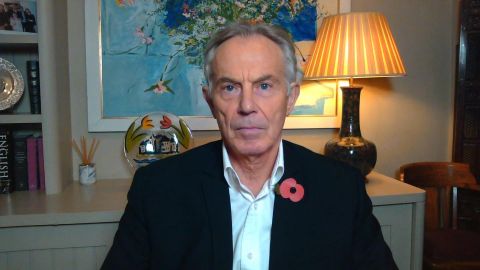Read Transcript EXPAND
TONY BLAIR, FORMER BRITISH PRIME MINISTER: And, look, I mean, whatever happens in the U.S., it’s got a system. There are processes in place. And I think the world is certainly reacting as if the election result is very clear. And it seems to be.
AMANPOUR: Well, to that point, the secretary of state is actually traveling around the world to various allies later this week. And, of course, as you say all of those leaders — and, as we have pointed out, they have, in fact, welcomed and congratulated president-elect Joe Biden. What do you think, though, Pompeo will say to them behind closed doors, places like in Israel and Saudi Arabia, Qatar, also in France and Georgia? I think he’s going to all those places.
BLAIR: I think it’s more of what they will say to him, which is, they will want to try and get some understanding of how he thinks American policy might change, and in the time left for the transition until the new administration comes in, what is this administration likely to do? But I think that things will move very quickly to, what is the new administration about, what are its challenges, what can it do to put America in the position that the new administration wants to see it?
AMANPOUR: Well, you know what? A lot of those countries that I mentioned, certainly the Gulf state countries, Israel, have really benefited under President Trump’s administration. They much prefer it to the previous Obama administration. What do you think or how do you think relationships there might be recalibrated or focuses shifted in certain ways under a Biden administration?
BLAIR: So, I think, out in the Middle East, you have got two separate questions. One is the whole issue of the burgeoning relationship between the state of Israel and the Arab states. I think that will continue under a new administration. I think the roots of that are very deep. I have worked on these issues myself for many years now, and the UAE agreement with Israel and Bahrain’s agreement with Israel, I think, is the first of many such agreements across the region. So, I think that — I would be surprised, frankly, Christiane, if that changes at all. I think the question will be, what is the attitude towards Iran, and going back to the nuclear deal? And, there, I think it will be — you know, there will be a lot of discussion and negotiation before the new administration really makes its mind up on that, because what they will find is, a lot of these Arab states and Israel, of course, will say, we have got — if we’re going to go back to some form of agreement with Iran, we have got to make sure that there are some curbs on the destabilizing behavior of Iran throughout the region. So I think that will be — that’s an issue which is less certain to predict. But I think, on the first part, I think the differences will be — between the previous administration and this one will be less than people think.
AMANPOUR: And on Iran, obviously, president-elect Biden and even before the election he said that he wanted to go back into the Iran nuclear deal, provided Iran was prepared to uphold its commitments under that. There are also words that — for instance, U.S. officials have been in Israel recently, and there’s word that they may be trying to slap a whole new raft of sanctions on Iran, to box Iran in, and box Biden in from being able to actually get back to at least the security arrangement. Is that wise?
BLAIR: I think nothing is going to impede a new administration once it’s in, other than the realities of the situation itself. And I think a lot has changed in these last four years, and a lot has changed inside Iran, where there’s no doubt that the regime is in one sense in a weaker position, but, in another sense, the IRGC particularly has strengthened its power. Its destabilizing activity around the region has not stopped. And the new administration will want to take account of that have, at the same time as perfectly naturally want to make sure that the nuclear ambitions of Iran are restrained. So, I may be completely wrong about it, but I think there will be quite a lot of dialogue and discussion before you see how that shapes up.
About This Episode EXPAND
Christiane speaks with former British Prime Minister Tony Blair about the world reaction to the U.S. election. She also speaks with father daughter pair Jorge Ramos, a Univision anchor, and Paola Ramos, author of “Finding Latix,” about President Trump’s strong performance with Latinx voters. Michel Martin speaks with journalist Masha Gessen about autocracy and the road ahead for the U.S.
LEARN MORE


